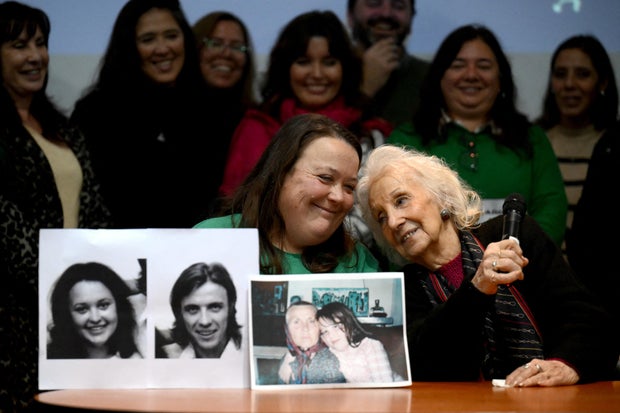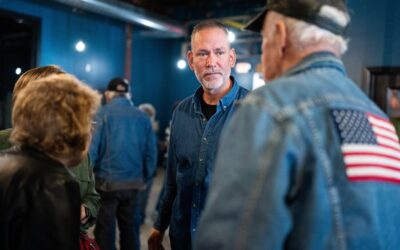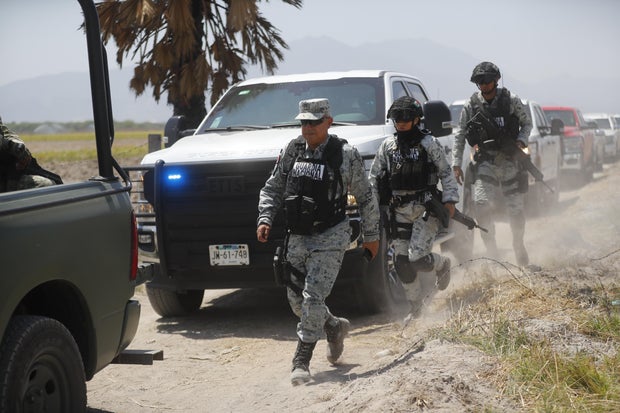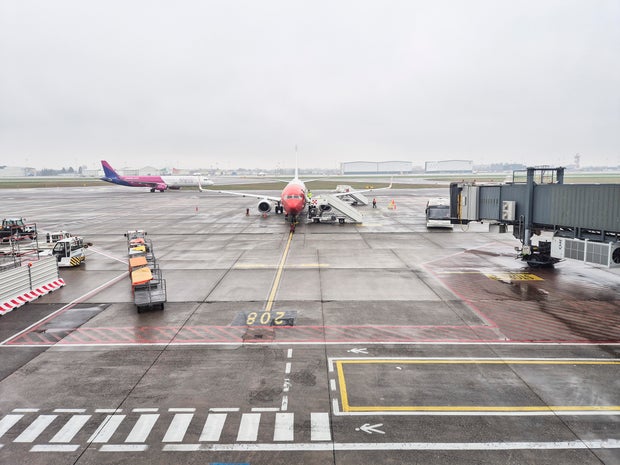Man, 48, identified as baby stolen during Argentina’s dictatorship: “Now I know where my brother is!”

Nearly five decades after he was born in a dictatorship-era detention center and snatched from his mother, a Buenos Aires man has become the 140th person identified as one of Argentina’s hundreds of “stolen grandchildren.”
DNA tests confirmed the birth identity of the 48-year-old introduced by the Grandmothers of Plaza de Mayo activist group Monday simply as “Grandchild No. 140.”
The group has worked for decades to trace the whereabouts of young activist women who were arrested and “disappeared” by Argentina’s 1976-1983 military dictatorship, and the now-adult babies they bore in captivity.
Nearly 500 infants are believed to have been taken, many given to childless people close to a dictatorship keen to have them raised as regime loyalists.
The identity of “Grandchild No. 140” was not revealed at a press conference held by the Grandmothers to announce the happy breakthrough.
But among those present was his older sister, Adriana Metz Romero, who works with the Grandmothers and tearfully told reporters she could not wait to meet her sibling in person.
LUIS ROBAYO/AFP via Getty Images
“Now I know where my brother is!” she said, sitting with a black-and-white photo of their parents: Graciela Alicia Romero and Raul Eugenio Metz, left-wing activists snatched by authorities in December 1976.
Romero was 24 years old, mother to a one-year-old daughter, and five months pregnant at the time, according to the Grandmothers.
She gave birth to a son on April 17, 1977 while held at a clandestine detention center known as “La Escuelita” in the port city of Bahia Blanca.
She was tortured there, according to witness testimony. Neither Romero nor Metz was heard from again.
The Grandmothers said Romero’s long-lost son was finally found thanks to an anonymous tip.
“We decided to call him to find out if he would agree to a DNA test. He agreed, and it was confirmed that he is my brother,” said Metz Romero, who has had initial contact with him via video call.
She was herself raised by her grandparents.
Founded in 1977, the Grandmothers group takes its name from the Plaza de Mayo square in Buenos Aires where women defied the dictatorship to hold protests demanding information on the whereabouts of their loved ones.
The dictatorship during the so-called “dirty war” was notorious for human rights violations. At least 30,000 people were killed by the military, some tossed out of airplanes into the ocean after being tortured. Thousands more were simply tortured as the dictatorship chased “subversives,” real and imagined, and moved to stifle any dissent whatsoever.
In 2023, a plane that was used by Argentina’s junta to hurl dissident mothers and nuns to their deaths from the sky was finally returned to Argentina after being discovered in Florida.
Argentina’s current libertarian President Javier Milei has claimed the death toll from the :dirty war” was lower.
The Grandmothers have accused Milei of defunding their research in his quest to slash public spending.
In June, the group went to court to demand protections for the National Genetic Data Bank — which helped in this case but has been left largely “paralyzed” by budget cuts, according to the Grandmothers.
Leader Estela de Carlotto, herself reunited with a lost grandson decades after her pregnant daughter disappeared, made another appeal for support Monday.
“Thanks to perseverance and constant work… they (stolen grandchildren) will continue to appear, but the search cannot be done alone,” she said at the “Space for Memory,” a former torture center converted into a memorial site in the capital.
“It was the state itself, through state terrorism, that facilitated the abduction of these children, so it must now facilitate the search for them,” said the 94-year-old.
“These 300 people who still need to be found are part of our society and must be able to exercise their right to identity,” she added.
In 2014, an Argentine woman was reunited with her grandson who was stolen as a baby. The man’s mother, a university activist, was executed in a clandestine military jail in August 1978, two months after she had given birth.
And in 2010, an Argentine man who was kidnapped at birth finally met his father after a 33-year search







